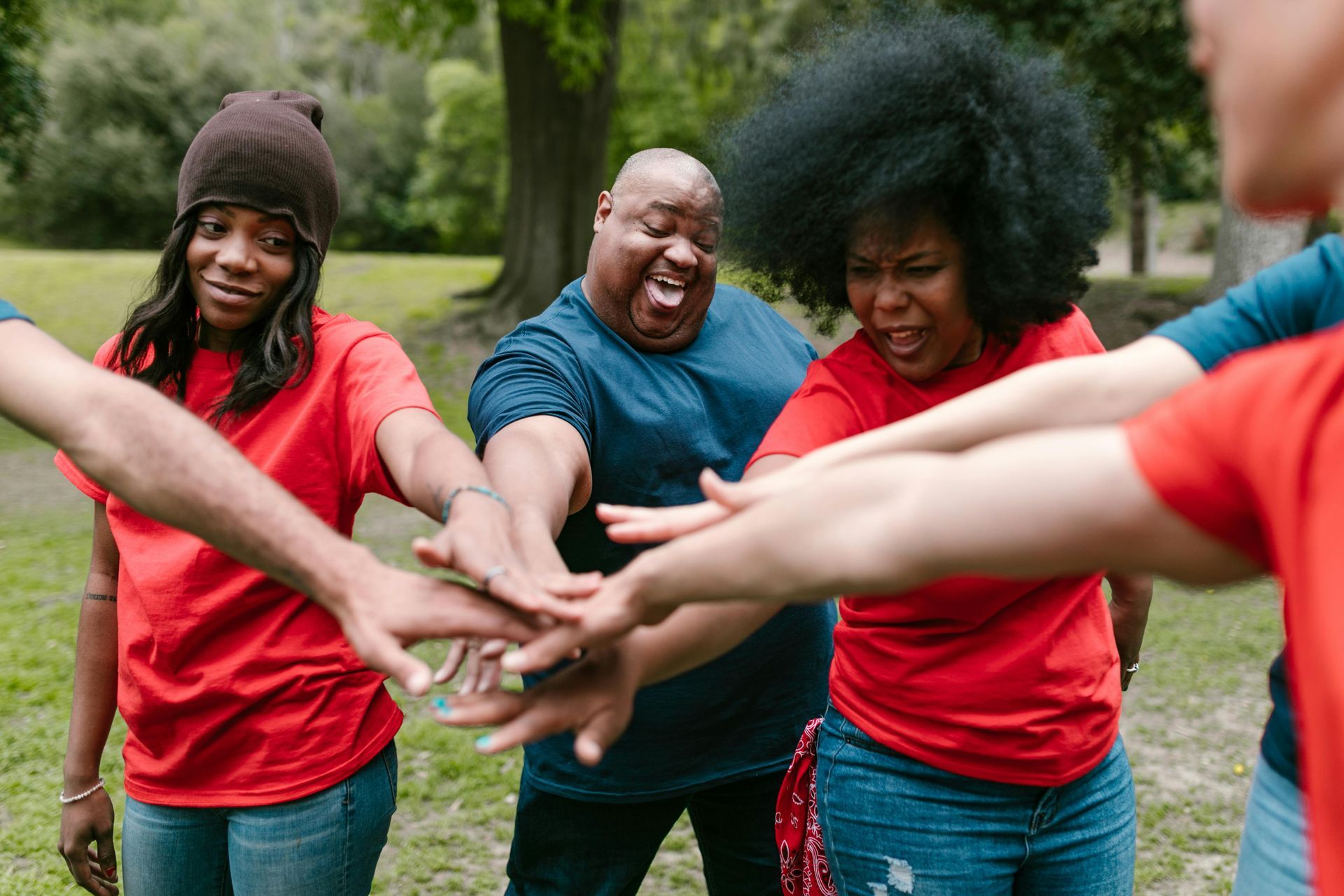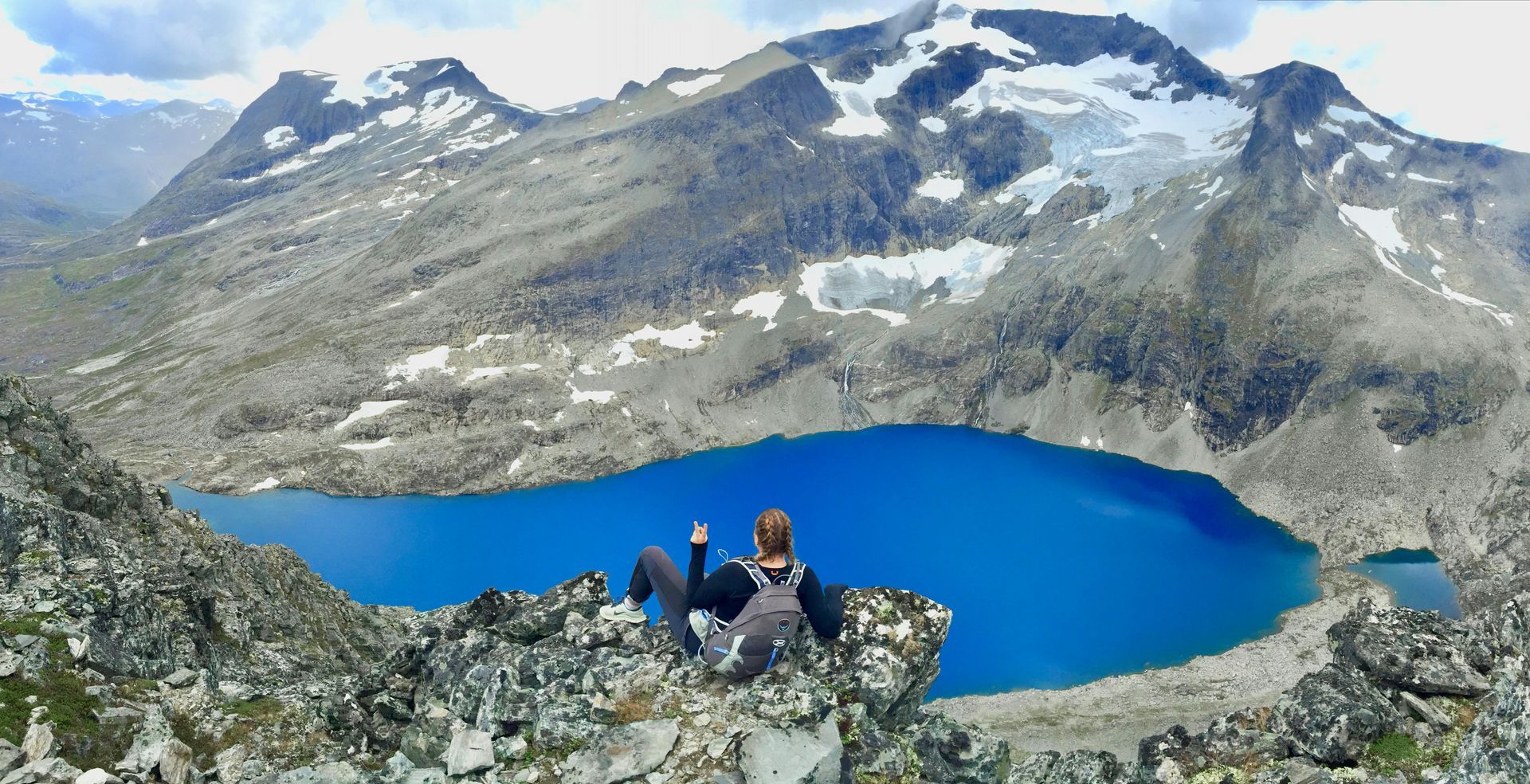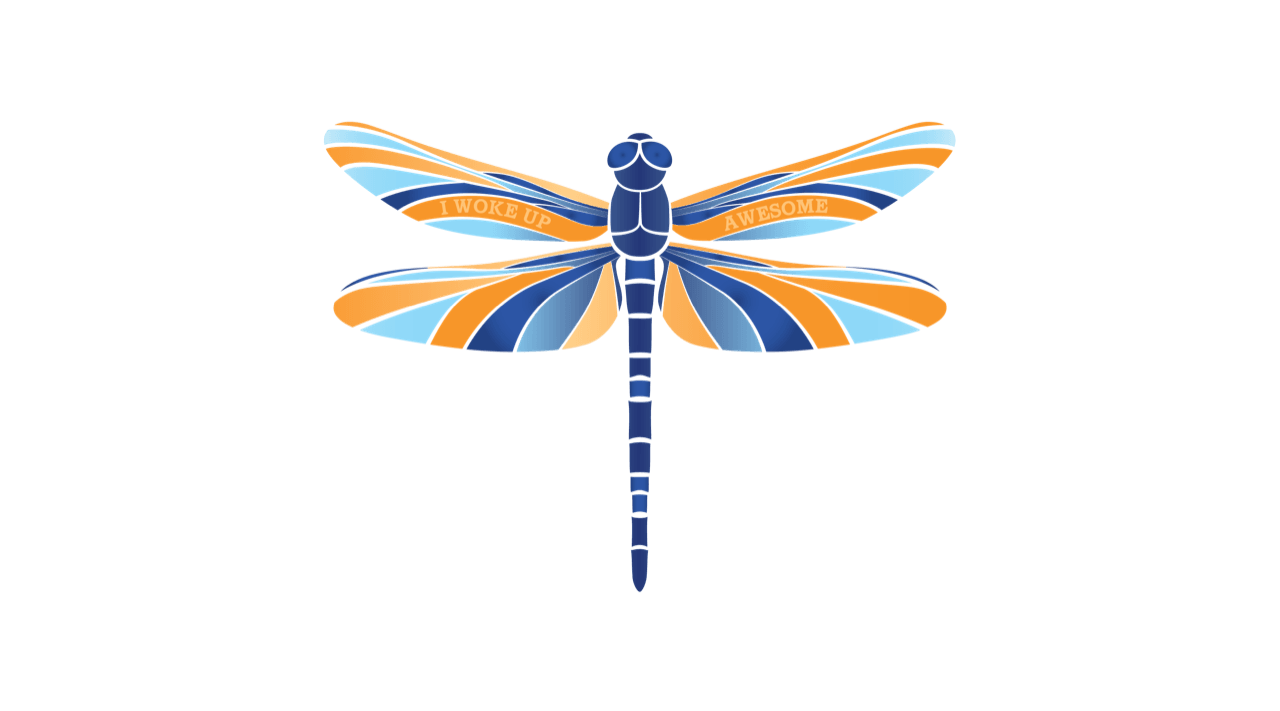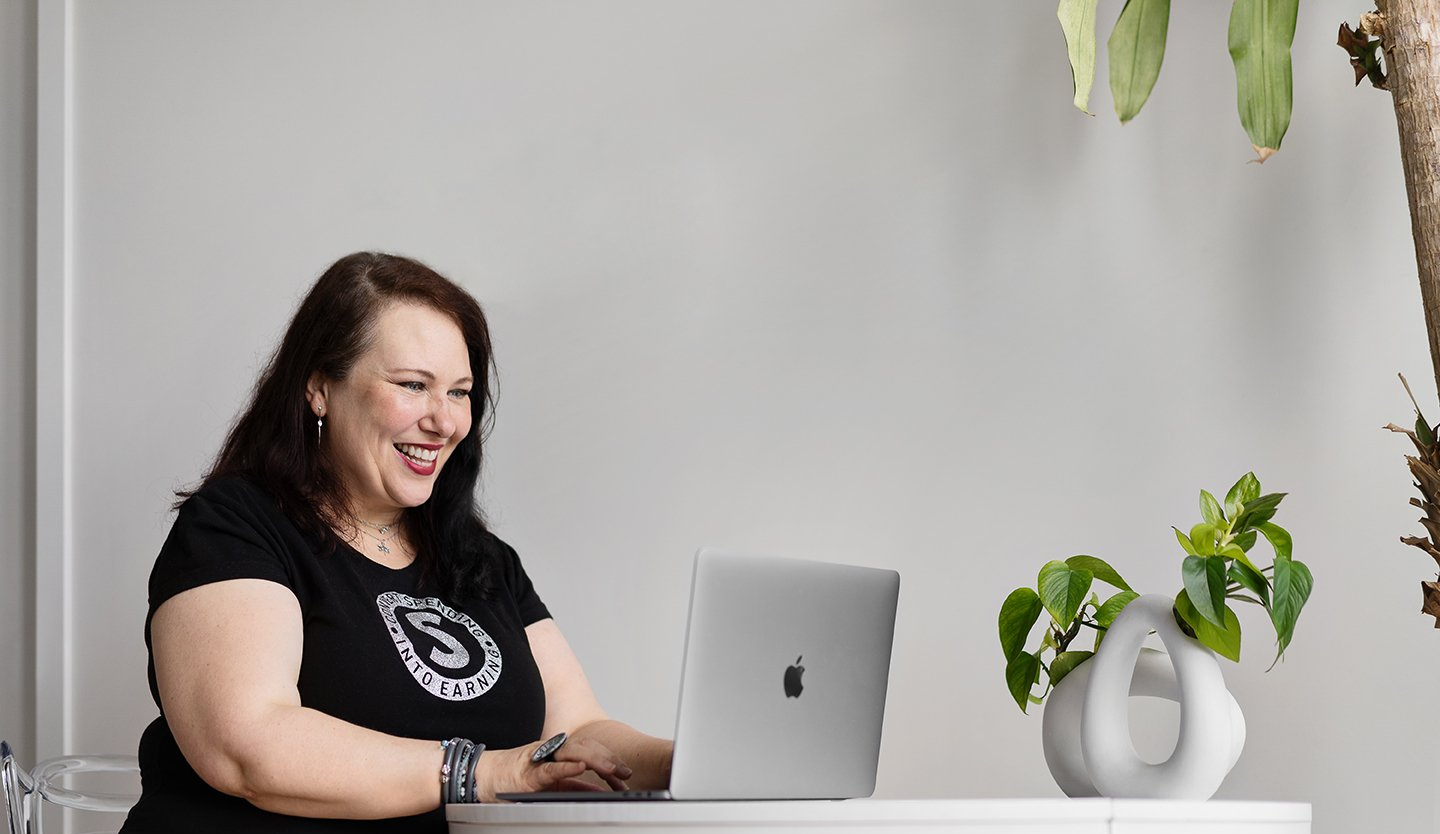Plate 71 - KNU 10 - with DP Knudten
This week on Trista's PL8STORY Podcast:
PL8STORY News: UK Personalized Plates Including the vanity plate Twitter is talking about this week: Prince Harry's plate on his wedding Jaguar.
PL8STORY Guest: DP Knudten of Wisconsin - License plate KNU 10 - DP has worked on some of the biggest brands in the business including Coca-Cola®, The Athlete’s Foot®, and ClosetMaid® during tenures at DDB Needham (Chicago), McCann Erickson (Atlanta) and creative shops in Denver, Sarasota, and Madison, WI.
He is the author of NONFICTION BRAND—Discover, craft and communicate the ‘completely true / completely you’ brand you already are,” and co-author of ROTOMA—The ROI of Social Media ‘Top of Mind/’ and the creator-host of the popular podcasts, The ROTOMA Podcast and NONFICTION BRAND. He is also a keynote speaker, coach and clinician in branding, social media, creativity and culture for businesses and individuals throughout the United States. www.dpknudten.com Enjoy this episode and want to buy me a cup of coffee? https://www.buymeacoffee.com/pl8story
Share this plate story:
Full Episode Transcript:
KNU 10
Hey there. I'm Trista polo here with this week's plate story. We're going to meet DP Knudten this week, he's a branding expert and an author. He's a podcaster and his license plate story isn't about any of that stuff. In fact, it's a retired plate that his dad had and he keeps it in memory of him. We're going to dive deep into DP's relationship with his dad and also talk about how he got into branding and marketing. And he gives lots of great advice along the way.
DP is witty, intelligent and fun. And I know you'll have a blast getting to know him and you'll get a lot of value too.
But first a little plate story news. I've been intrigued for a while by the UK personalized license plate process. Actually, since I spoke to Simon Lader, plate 46's guest. Now he's in Vegas these days, but he originates from the UK where a personalized plates are only available through auction. And they can be pretty pricey at that. You're not able to actually get your choice of letter number combos, but by the luck of the draw, some combinations are unique and highly sought after. For example, the UK license plate 1A went for 160,000 pounds back in December, 1989.
And K1 NGS or Kings, went for 185,000 pounds, in December of 1993. The largest price ever paid for a UK plate at this auction process was 518,000 pounds in 2014 for the plate, 25 o so I was surprised to hear just this last week that there was buzz on Twitter, about the plate on prince Harry and Meghan's Jaguar at the Royal wedding in 2018. One Twitter user tweeted that she realized the plate on their wedding car was E 1 9 0 5 1 8, which was actually personalized and significant. In fact it was their wedding date. The Twitter user, Vanessa Nguyen, purported that it meant established 19th of May, 2018. However, according to the British car registrations website, they wrote an article back in 2018, the E actually denotes the type of Jaguar model they drove.
And it turns out this plate was only used for the wedding and would not be legal on a public highway. However, it was perfectly fine to mark the special day, as it was kept on the private roads of the estate of queen Elizabeth. That's our plate story news. Let's go meet DP.
[00:02:36] Trista, Host: I'm super excited to introduce you to this week's plate story DP Knudten. His license plate is KNU 10 and he's from Wisconsin. Welcome DP.
[00:02:49] DP Knudten: Thanks for having me on your pod.
[00:02:51] Trista, Host: I'm so excited to have you. You're a podcaster as well.
[00:02:54] DP Knudten: I am.
[00:02:55] Trista, Host: Let's start with your license plate, which if you're watching the video version, you can see in the background, it's hanging on your wall.
[00:03:06] DP Knudten: My left shoulder. Yes,
[00:03:08] Trista, Host: indeed. So tell us about your license plate.
[00:03:12] DP Knudten: Well, for those fans of that seventies show, which at the end of it, the producers kind of vanity plate would show up at the end and it was the Wisconsin America's dairy land, kind of in a, at that time, it was kind of an orangy yellow.
Well, if you have that in mind, that's pretty much what my vanity plate looks like, because this is, and I kid you not because it's actually embossed into the plate itself. A 1980s circa vanity plate from the state of Wisconsin that my dad got. And there are only a 1, 2, 3, 4, 5 characters on it with a big gap in between them.
And it reads K N U one zero Y. Because my last, name's a pain in the butt and I have to spell it every single day as did he every day of his life. So he thought we'll, I'll be smart and I'll get a vanity plate that helps people by literally showing them my name is pronounced this way. K N U canoe 1 0 10, canoe 10.
Now, if you want to go all Danish or Northern German about it, I could say it's more of a canoe-tn with a dip thong, but I'm happy if you just get canoe 10.
[00:04:28] Trista, Host: I mean, and I will tell you, I'm just going to be really authentic to everyone listening. I still didn't get it right. Even with the license plate in
[00:04:37] DP Knudten: there, you know, people pick vanity plates for a lot of different reasons, and I'm sure you've covered all of them during your episodes.
But in my case, it was really, I think my dad wanting to put his mark on the world and also maybe help out with the pronunciation part. But I, I look at it now is kind of indicative of who he was, his character and stuff like that, you know, because we're here in Wisconsin. So, you know, we got the Green Bay Packers as our local football team, you know, go pack or something like that.
There are thousands of vehicles in the state of Wisconsin with some variant of Go Packers or because I'm located right near Madison, Wisconsin, the place where the university of Wisconsin Badgers play. Bucky Badger and all that stuff. That's all over license plate. Did my dad choose to go that route?
Did he choose to go back to an old back when he was in college, maybe a mascot put that on his license plate? No, he did. None of those things. He put his name on it because he wanted people to know who he was and how to pronounce his name. And now we've talked about this a little bit before the recording started that we're both in marketing and branding backgrounds and stuff like that.
Well, I'm a big brander now. And my podcast, the Non-Fiction Brand podcast is all about personal branding and all that I realized now I, and like I only realized this like two days ago, my dad was actively personally branding himself in 1980s, Milwaukee. Wisconsin. I mean, how crazy is that?
[00:06:18] Trista, Host: Like before it was a thing before there was a book about it or podcasts about it, or our marketing majors that you could get in college.
Now this is a an original, like when they first started coming out with vanity plates, right? Like this was when the first vanity plates came out.
[00:06:37] DP Knudten: Yeah. My understanding is, and my memory, cause I'm old enough to remember this is that, and this may not be historically accurate, so don't go to the Smithsonian with it.
But my memory was, I think it may have started in California where all trends start. Right. And they started coming out with these things called vanity plates and I'm in Wisconsin. So it probably took a couple of years to get here before the state realized they could make some serious coin by letting people do their stuff.
So it didn't really hit here until maybe the late seventies, mid to late 1970s. I think. And my dad was on it immediately. And the reason the plate I have is in such pristine condition is because in the state of Wisconsin, we are required to have front and rear license plates on our cars. So you would think they both be in pretty crappy shape.
Right? Well, the state of Wisconsin, I don't think was up to speed on, on how to actually manufacture these license plate effectively. So they sent us two full sets way. And I remember when they came in the mail because they were so unique, it was like the first kid in town with a brand new music album or something like that, that no one else has ever heard before or
[00:07:55] Trista, Host: the first kids to get MTV.
Yes, exactly,
[00:07:59] DP Knudten: exactly. Or that the first kids to get the first X-Box or something like that, it was a big, big deal. And that's, it's obviously stuck with me because that was. How many, how many, how many going on almost 45 years, something like that.
[00:08:17] Trista, Host: And then one on your wall is the extra
[00:08:20] DP Knudten: one. It's part, it's one of the two extras that were sent by the state.
I don't know where the, the other one went, but I kept that and it's followed me to colleges to multiple moves across the country, living in cities all over the United States. And I've always had it with me, not always prominently displayed, but it was one of those things where as you're going through and tossing out stuff that you don't need or want, that's the one thing I kept.
And I don't really know why. I mean, if I'm going to put on my psychology hat, it might be that it represents my father in multiple layers. You know, we talked about this before we started recording that there are a lot of layers to why I have this license. And not the least of well, and not the least of which is my relationship with my father, because like a lot of men who, you know, they may not have the closest relationship with their fathers.
And my father passed away in 2007. So it's been quite a long time, but believe me that, that imprint of my dad on my life and on my personality and everything else. It's, it's, it's, it's pressed in there just like a license plate, you know, I can change the paint color on it, but boy, that embossing you can't get rid of the embossing.
[00:09:46] Trista, Host: I think it's so interesting when we look at who we are based on our parents, we can't really blame them for our idiosyncrasies and missteps because we're adults and we have to take responsibility, but they definitely had an impact on who we are. Is there anything about yourself that you would say is because your dad modeled it or in spite of like to go against what your dad did?
[00:10:13] DP Knudten: Okay. Trista, how much am I going to have to write a check for after this, for this you're about to give me I will. Okay. Birth order. I believe birth order does affect things and I was a second born second of four. Second boy. So my older brother, two years older than me rule follower. Absolutely. The authoritarian, all that stuff.
Well, I am the opposite of that and because my dad was pretty authoritarian and intellectually challenging. He and I started butting heads pretty early. Not in any type of I don't know. I, I guess it, I didn't turn out to be a screw up. You know, the second born screw up is kind of a, a trope or a cliche.
I wasn't that, but I wasn't him and I was always okay. Rules are fine. Tell me why I should follow. And he was always, there's a rule and I'm like, tell me why there's a rule
[00:11:15] Trista, Host: because I said, so was growing up.
[00:11:18] DP Knudten: Yes. Well, it came to that because after a while it just got, because I said so, and that was never good enough for me, but, and here's the thing, you know keeping in the whole kind of transportation universe with license plates and stuff like that.
I understand why there are rules, like the reds, the light is red. Don't cross the intersection. Why? Because you won't kill someone or get killed. There's a great why there, but there are a lot of rules or standards or mores and Folkways in our society where I'm just gonna throw out a tell me why, if it's a great reason, I recognize that.
Cool, good reason for that. But I always have to know the why, and that's affected everything in my career. And so. Just like a license plate, you know, you've got the M bossing, which kind of raises the letter, but you got the D bossing, which presses it down. I have both embossed and debossed things about myself that I'm sure I can point to my father's influence on.
I am not I'm not crippled by that. But I, I would be lying if I said I didn't think about it frequently, even years after his passing.
[00:12:37] Trista, Host: Yeah, sure. I mean, of course. And you have had such a successful career in advertising as a copywriter and you are now teaching other people how to not just have branding, but branding of themselves.
And you're doing a lot of that. You have a book that just came out, so, you know, you're doing a lot of great stuff. Tell me a little about your career in advertising in copywriting. How did you get into that?
[00:13:06] DP Knudten: Oh, well, okay. So we went on dig. Okay, we're going, we're going follow me children as we go back several decades when I wanted to be a forest ranger.
Yeah. I wanted to be a forest ranger. I want to have one of those, those hats, and I want it to be the guy you go to Yosemite and he tells you about glaciers formed the valley and all that. So I went to a school here in Wisconsin, which has one of the world's best forestry programs here the university of Wisconsin and Stevens point.
And I got there and I started taking classes with people who were boring, boring, boring, and I always had this let's call it a theatrical bent, you know, so I switched from forestry to drama and theater as my major. So I graduated with that and proceeded to at the time of graduation, say, I'm not ready.
I'm just a kid from Wisconsin. I got to go to grad school. So I auditioned and I got into surprise, surprise the university of Southern California out in Los Angeles. And I got out there. And if you've seen the movie La La Land. That's what it's like to be a person who wants to be an actor in Los Angeles.
Everything is a trial, everything is an audition, everybody you're talking to is auditioning against you, or you walk into a room and there are 50 people who look exactly like you. And I just, I know this will be people who know me might take issue with this, but I do not have a titanium ego. And that is what's required to be successful out there.
So cut fast-forward blah-blah-blah I'm in a no, no nowhere to go temp job. And I saw an ad in the Chicago reader, which is an alternative weekly newspaper in Chicago and an ad agency. J Walter Thompson took out an ad on the back page that said, write, if you won't work and then it gave eight writing assignments and a little body copy said that there are a lot of creative people in non-creative jobs.
Have you ever thought about becoming an advertising copywriter?
[00:15:19] Trista, Host: Well, that's cool.
[00:15:20] DP Knudten: Well, I kind of did, because if you're old enough, like me, you'll remember a sh a little show called Bewitched where Darren Stevens was an ad guy, and this is way pre Don Draper in Mad Men, but it was that same era.
And so between that and the Dick van Dyke show where he was a comedy writer, I'm like, oh, comedy writing and writing, I guess there's a job that requires that. And then I saw this ad. And so I was out in Denver and I took a blind chance. I did the writing assignments did not send them to J Walter Thompson, but I sent them to eight agencies in Denver.
And guess what? The one of my eight packets got to a guy who, who happened to be the creative director at the largest agency there at the time. And he called me up and he said, I don't have a job. But I think you're talented. Oh, cool. Why don't you come talk to me? I did. He became a mentor fast forward, got my foot in the door as a junior copywriter at an ad agency, and then rode that wave to today.
You know I'm in advertising, marketing now going, getting close to 30 years and now I'm taking everything I've learned. As you've mentioned, I have a new book out it's called "NonFiction Brand Discover, craft, and communicate the 'completely true / completely you' brand you already are." And it's all about using branding to package yourself and look just like a, a cereal almost so that people know immediately who you are, what you do and how. And isn't that what my dad tried to do with my license plate. We'll see what you did
there. Good call back. Good. I know
exactly. Hey, I got to get back to the title of your podcast for crying out loud.
Otherwise people are going to go, what's this guy talking about, I'm talking about license plates, people
[00:17:12] Trista, Host: all over the place on this podcast. There are no rules,
[00:17:17] DP Knudten: but anyway, that's the long story. Not so short.
[00:17:19] Trista, Host: I love it. Why didn't you submit to the company that actually was looking for copywriters on the back of that?
Well,
[00:17:27] DP Knudten: they were in Chicago and I didn't feel like moving back to Chicago. You know, I, I, I moved out to Denver and wanted to ski, wanted to snowboard, wanting to climb, rock climb and all that. And you know, the best thing about Chicago that Chicago ans will admit to is Wisconsin. And, you know, so I'm from Wisconsin.
I like the outdoors. I want to do align myself with the true self of who I really am. Huh? This goes back to personal branding people. I know who I am. I am a nature boy going all the way back to wanting to be a forest ranger. I need to be close to corn fields and the outdoors and stuff like that. The closest in Chicago, you can get to that as go down to lay the lakefront.
You know, some of the parks, they're not the same thing. So I aligned myself with who I am, what I do and how I do it. And now I'm a advertising guy living in Sun Prairie, Wisconsin on the outskirts of the capital city of the, of the state of Wisconsin. Madison Wisconsin.
[00:18:37] Trista, Host: Awesome. Now you've been in advertising a lot for many years.
Are there any brands you've worked on that we would be familiar with?
[00:18:44] DP Knudten: The big name I always drop because it's literally where I learned how to become an advertiser. And brander is a little brown, bubbly sugar water based in Atlanta, Georgia, because I worked in Atlanta, Georgia at McCann Erickson on this company called Coca-Cola and you've heard of it.
Yeah, I think so. And you would probably never have seen anything I did for them because I was a low-level ish, you know, medium level copywriter and stuff, but I learned what branding was. Cause, keep in mind, my, my training was in theater. And I just convinced myself, cause I watched enough Bewitched episodes that I could do copywriting and I got people to actually hire me.
So when I got to McCann Erickson, I kind of went to grad school on what marketing and branding was. And, you know, I learned a ton because let's face it. If you ask people to name the top 50 brands globally, Coke Coca-Cola is definitely in that top 50 lifts. Is it in the top 10? Maybe historically it is it maybe isn't so much now, but yeah, it's it.
I would, I would put it in top 10 just because it's been a global brand since 1886 and it's product is say it with me. Sweet brown bubbly water. That is as commodity as it gets. And yet you're a brand oriented person, which you may not be for soft drinks, but I don't drink soft drinks unless I have a hankering for the way I felt as a kid, when that I got that sip of a nice cold Coke with the sweetness and the S the tart kind of acidic bite to it.
I'm a Coke guy. And I always will be a Coke guy. That is my brand. And I have all these layers of psychology that have, are part of me that make me not be a Pepsi guy, not the least of which is that my dad was a Pepsi guy.
[00:20:55] Trista, Host: See, we're just coming back to it, come back to it. Wow. So Coca-Cola, but
[00:21:02] DP Knudten: that's the power of a brand, right?
Yeah, because otherwise I would pay the lowest possible price for the product for a commodity. I don't want to commodity, I don't want Sam's Cola. I don't want, you know, some other branded Cola, I want pure red and white in a bottle. Coca-Cola you know, that green glass bottle. I still think about that because it's not about the fluid that's in the bottle.
It's about the entire experience and everything Coke represents. That is not unlike what personal branding's about, which is once people know you, have you ever had this happen to you where someone who loves you and really knows, you says, oh, if they only knew the real you, they would value you. Well, the whole point of branding is so that people always know the real you, you know, so that they can choose you the way that I choose Coca-Cola, which, you know, again, this is going into my background, a little.
COVID hits. Right. I was a freelancer. I was working for a wide variety of people. Things slowed down markedly. Really, really bad. Toward the end of last year, I get a call, an email, actually from someone I worked with through an agency six years ago, they know who I am, what I do and how I do it.
And they reached out to me because they understood those things very clearly and said, Hey, why don't you join our team? So I got an incoming and I did not ask for it an incoming invite to join a company because they understood what I would call my personal brand to the point where they saw tremendous value.
[00:22:50] Trista, Host: Now, this is something I want to hone in on because in your book, you talk about, if you don't own it, it's not yours. And you talk about, you know, look, if you work for another company and you do a really great job for them, but you don't set yourself apart, then you'll never stand out. Now you're talking about the fact that you, as a copywriter have a brand that stands out beyond what your resume says, your jobs have been, what accounts you've worked on, what names you can drop that people have heard of.
How do you set yourself apart at a job when you're expected to be part of a team and work for the company's mission and all of that?
[00:23:34] DP Knudten: Well, just ask yourself this what, wherever you are working with a team, someone on that team. If I forced you and said, who's the most creative person on that team, you'd have a name for me.
If I said who's the most analytic. On that team you'd have a name for me. If I asked you, which is the one person you would could count on to come into work at 5:00 PM on a Sunday, because something blew up, you'd have a name for me. Each one of those people have the seed crystal for a personal brand, which is not about the fact that I know Microsoft Excel, and I can do this software development based on this language or whatever else it's you don't hire people for that.
You hire cogs to do that stuff you hire problem-solvers based on what your problem in pain points are. So what are your pain relief qualities to somebody else in the case of the job offer that came in to me it's because yeah, we didn't like the creative we were getting from this other company, but we always love the work you did for us creative work.
They didn't say words. They didn't say typing. They didn't say Microsoft word. They just said, you're really creative. And we want you to bring whatever you have in that regard to us. So one of the things I like to point out is that people in the creative side tend to be valued pretty highly, but most companies value something even a higher or some other type of work or purse and even more.
And that is the organizer, the person who can project manage soup to nuts, everything juggling, many, many balls, all that stuff. If you're an organizer and think, well, I can't, I can't personally brand myself as an organizer. I would say to you, you are wrong. That's exactly what people should know about you.
Because people like me, creative guys who are flitting around like a fruit fly in a fruit. You know, I can't organize stuff. I need someone like that. And by the way, I'll pay someone to do that stuff because I'm not good at it. And you say, oh, but I love to do that stuff. Great. You get to be paid for something you love.
That's how you have a job and a career that you are, truly satisfied with.
[00:26:08] Trista, Host: I love that. So it sounds like if you can, just, this is for people who have jobs, if you can just find what it is about you, that sets you apart from the people on your team and shine a light on that, whenever you can, that people will come to know you for that and count on
you
[00:26:26] DP Knudten: for that.
Right. And you need to demonstrate it. You need to demonstrate over and over what that, that core first principle thing you do is. For example, you know I'll just use me as an example. That creative thing. I have to demonstrate that. So everything I do, my podcast, I can be creative. The book I wrote, I can be creative.
The fact that I designed the cover and the logos and everything else, I can, I demonstrate who I am, what I do and how I do it. Yeah. And by the way, who's that guy's photo on the front cover. I'm not hiding my light under a bushel because here, okay. I'm from the Midwest. Right? We have that kind of, oh, yo, you're not all that, Mister.
You're not better than anybody else. You put your pants on one layer at a time, just like everybody else, you know? So we aren't braggy. Right? Well, that creates people who don't take credit for what they deserve credit for, you know, and that I don't want to pull out any type of too broad a brush, but a lot of women have that problem.
They'll do all the work and take none of the credit and that my friends is BS. You need to own what is yours to own? So when I say, if you don't own it, it's not yours. I'm referring to the fact that I was let go from a couple of different ad agencies. Not because I was bad, not because I was a jerk, not because I wrecked the company car, but because we lost a client and we look at the spreadsheet and you're in your X years, I'm in the midst of my X years, which is I'm experienced.
I'm demonstrably. Excellent. I'm expensive. And therefore expendable, if you've got the highest cost on the spreadsheet of, you know, employment what people are being paid, it's easy to get rid of one of you if I can keep three of them. So see you later. Well, that's what happens when you're a premium brand, you get a premium price, but if I'm not the principal of the agency, in my case, or the business.
It's not mine and I should never be deluded by it. However, what is 100% mine is who I am, what I do and how I do it. My voice is uniquely my own. My experience is uniquely my own when people say, well, I just, I, what should I say is like, share what you know, you know, it's always been said about writers, write what you know, well, brands demonstrate what you know and can prove.
So in my case, I've got to do all this creative stuff. A brand I like to point to as Susie Orman, you know, her, she's the great female financials guru. She works. Yeah. Works a lot with women, especially women who are, you know, maybe under informed about finances and stuff like that. She is taking, what's known as a best practice in the financial services. And applying it to a specific niche in the case of her empowerment of women and finances. And one of the things she loves to say is, do not look for a man to take care of you. You can not count on that. You need to do it yourself.
You need to own your power. Do you see what I'm saying? The same stuff she's saying, which is you have to own, what is yours and the way to do it is pay yourself first. Just a simple concept like that. Pay yourself first.
She has not got the Nobel prize for economics. She is not the richest woman on the face of the earth, but boy, is she fantastic at motivating people to do what they can do to own what is theirs to own? And. She is, she's created this incredible personal brand that is now a global business because she recognized the thing I do better than other people is communicate.
So again, if you're looking at what does Susie Orman do? Yes, she does financial stuff. She did, blah, blah. No, she communicates and inspires. Those are her super powers. So what is your superpower? And I'm pointing at Trista right now. What is your superpower? Trista.
[00:30:51] Trista, Host: I'm an amazing listener.
[00:30:55] DP Knudten: How do you brand great podcast?
[00:30:57] Trista, Host: I mean, I am, I'm an, I'm a great listener. I can hear what you're saying, what you're not saying, what you're avoiding saying and what you'd really like to say, but maybe you're not quite ready yet. I'm a great listener and hear all the layers.
[00:31:14] DP Knudten: And there are a lot of layers there, but. One of the things I learned to love is to embrace the abrasiveness, the, the parts of my personality that may rub people, literally the wrong way.
I can't get rid of those things. There are people who hate me with a passion, the heat of the sun, you know, the surface of the sun. And that's okay. Cause I don't really like them either. And by the way, they aren't going to buy my products or services or engage with me in any meaningful way. I'm going to look for the people who like what I do, who get the brand, because again, Coca Cola, doesn't sell Coca-Cola to every single person who likes soft drinks, but boy they're rabid fans love them so much. They do their entire basement media center room in Coca-Cola livery with collectibles and all that stuff. Why cause Coke is my brand. I'm looking for the DP and as their brand.
[00:32:16] Trista, Host: You're absolutely right. And I do have trouble with knowing that there are people out there that don't like me, it comes from my own childhood stuff that I carry around, but you're right.
Look at Coca-Cola. Since we're using that as an example, Pepsi, their arch nemesis did an entire campaign to taste, test and prove they were better.
[00:32:38] DP Knudten: I can tell you a story about that because you're talking about the Pepsi challenge.
Which occurred in the late eighties, the brand new mall of America up near Minneapolis was a huge thing. It was on everybody's radar. So Pepsi decides to do a taste test challenge where you've got two blind Cola's, which you prefer. Well, they told the truth, they did the test and they found out the majority of Cola drinkers preferred, the taste of Pepsi.
Guess what Coca-Cola did the same research and found the exact same thing. And what they realized was that what they thought. And I will say they thought at the time was that American's tastes had changed. What was the acidic bite of Coca-Cola was giving way to the sweet taste of Pepsi, because if you compare them side by side, Pepsi is sweeter.
You can do it right now. Go get a can or a bottle of. Try them side by side and you'll go, oh yeah. The flavor profile of Coke is a little bit more acidic. A little bit more bite, plenty sweet, but still bitey. Coca-Cola freaked out. So what did they do? They changed their formula, the biggest
[00:33:53] Trista, Host: mistake of their brain,
[00:33:57] DP Knudten: what they learned from it.
Then they literally came out with a sweeter version of Coke. And what did the combined American marketplace and global market? Oh my God. Their heads exploded. Why? Because people aren't buying Coca-Cola for the liquid. They're buying it because it's the real thing. It never changes. I like to call Coca-Cola grandma.
Everybody loves grandma. Grandma's a little acidic and a little bitey, but we love grandma and we defend grandma and you don't mess with grandma. And what, what Coca-Cola did was mess with grandma. And what did the marketplace force Coca-Cola to do? Go back to classic Coke for those of us old enough classic Coca-Cola was the same old recipe because people loved it.
And guess what? After that debacle Coke came back stronger than ever because the brand fans rallied around the brand. They recognize the fact that Coca-Cola was doing the right thing by going back to what it always was. Keep in mind that their tagline at the time was the real thing. And by the way, every single ad that I had to write for Coca Cola, when I was at McCann Erickson in Atlanta had to communicate three core ideas: authenticity, refreshment, and sociability.
What does that mean? Authenticity? We are the first we're the only we're the real thing you show it via the bottle shape. You show it via the red and the white and the Spencerian script logo that has not changed, plus minus 10%, since 1886. Sociability, you drink it at family gatherings at football games at picnics at Christmas.
Oh, by the way, this will probably be airing a little bit closer to Christmas. Huh? Are people going to be waiting to see what the Christmas commercials are for Coca-Cola you know, is it going to be polar bears and seals? People look forward to the fricking Christmas commercials because they love the brand so much.
And then the final one was refreshment. Refreshment is the AHHHHH of Coca-Cola guess what? The refreshment starts the second you grab the can and it's cold in your hand. And I think about it when I would go visit my grandmother in Salina, Kansas in the 1960s and seventies, you know, going to Kansas in August is like going to the outskirts of hell on the hottest day of the year.
And we would play outside like crazy. And then I'd come running in the screen door would slam because she was an old Swede and she didn't have air conditioning. So the screen door was open. You know, it screen door slams against the frame. You go run it into the refrigerator, which was so old it didn't have an interior light.
You, you Fisher hand around in there until you find the bottle shape of the green glass Coca-Cola bottle. And then you do the most important thing with Coca Cola on a hot day in Salina, Kansas, pull it out and put it against your neck. You're so hot that you just want to get that cool going through your bloodstream via the carotid arteries of your neck.
And let me tell you that's when I understood that refreshment was not about the ahh in the mouth, it's about the ahh of the entire brand user experience. They understood user experience before UX ever was a trendy thing for websites to do. I give them nothing but credit for that. And that's where I learned what the power of branding was.
[00:37:45] Trista, Host: That's amazing. Now we want to talk about personal brand because that's important. And you mentioned the three things, which I think you call Key 3 in your book.
Yeah, I call it the key three, everybody. And this goes all the way back to those three words, authenticity, refreshment, and social. Notice it doesn't say liquid or soft drink or can, or anything like that.
These are three core principles. So when I work with people on their personal brand or encourage people to work on their personal brand, remember the human brain is designed to remember things in series 1, 2, 3, but not 4, 5, 6, 7, 8. Put it in threes. I can't remember more than that. So I'm going to remember three things that are absolutely the three legs on the stool. That is my personal brand, right? In my case, really simple: creative, collaborative, provocative. Those are my key three words. Which means everything I do and present and demonstrate should be creative. Oh, that's, that's really not standard. You know, that's a new way of looking at it. Collaborative working with other people, communicating with other people, even as an author, you are collaborating with your readers because you're constantly thinking as you write, are they going to understand this? There's this conversation, even before anybody opens the book, the conversation is in the head of the writer, which is, are they going to get this? Does this make sense? Is it memorable? All of those things I'm collaborating with you and you don't even know it. And then the last word, which was the hardest one for me to describe about myself and embrace was provocative. I understood my value was not by taking someone's order and giving them what they wanted, as good as I could possibly make it.
I like to call my technique, tweak on the cheek poke in the eye. Which is tweak on the cheek. Oh, that's a really good idea though. I love the input. That's really great inspiration. Poking the eye. Have you thought about this? Because my value as a creative collaborator is not by doing what you say. It's by listening deeply, like you talked about Trista, a listening deeply and understanding.
I know you say you want this, but here is what you need. If I'm not bringing what you need, I'm of no value to you, or I'm a short order cook who just delivers what you ordered.
Yeah. It's the difference between like a graphic designer and a programmer. the graphic designers, creating what you don't even realize you need, whereas the programmer is, you know, kind of just putting it all together in the right way.
Yeah. So the Key 3, though, it's overwhelming and daunting for someone who's never really thought about their own personal brand. It's sort of like asking a company to come up with a mission statement. Right. So do you have any key tips to coming up with that Key 3 for a person who wants to take that on?
Yeah.
[00:41:02] DP Knudten: Well actually I would love to invite your listeners to go to my website, DP kanuten.com/gift, and you can download some PDF one sheets that will get you started. There, it's not going to be the end of the journey, but it certainly is going to kick it off for you. And again, my website is DP as in David, Paul Kanuten K N U D as in David, T as in Tom, E as in Edward, N as in nothing.com/gift.
[00:41:38] Trista, Host: And I'll make sure that's in the show notes as well, so people can get to it. That's great to give people some tools and, but you coach people on this as well. Right? It's you don't just do this for a living. You help people come up with their brand. Is that right?
[00:41:53] DP Knudten: Yeah, I do. And I've worked with a lot of companies and stuff like that.
The, as I mentioned to you earlier, I did take a full-time position working for one of my former clients through another agency. They, they fired the agency, but kept the creative guy. I love that personally, just saying and I get to work for a great company. It's called Southeastern guide dogs down in Palmetto, Florida, and yeah, well, exactly.
I love dogs and they raise and train and create service dogs and guide dogs for the visually impaired, veterans with PTSD and also children and youth who could really use that type of fantastic superhero dogs. I mean, these dogs are like, they are the ninjas of dogs
[00:42:38] Trista, Host: and sure. We have guiding eyes for the blind around here.
And I have friends who have been the first training family and those dogs are
[00:42:48] DP Knudten: amazing. And boy there, they do such fantastic work and I can't be happier working with them, but I do consult with people, individuals, and companies, to help them on their brand journey if you will there I believe, and again, it goes back to my podcast name and the book's name non-fiction brand.
I don't deal with fiction brands. I'm not going to make up something about you, but what I'm going to do is what Trista does deeply listen, ask smart questions, look at all the layers of your onion. Identify the stuff and get past the stuff. Well, you know, this is what I do and go, no, that's not what you do. What you do, and what I always would like to tell the people I worked with was when we would go present new ad creative, we are the circus coming to town. We are the one day of the week where they don't have to look at spreadsheets and they don't have to be beaten up about numbers. They can see fun, creative ideas.
They can add their ideas on top of it and, and, and participate. It's it's like a day in the sandbox. If we don't realize our product is one part pain relief, one part delight, and one part inspire them to become more excited about what they're doing. We're not doing our job. And did you see what I just did there?
Three things delight, inspire, encourage or whatever the three were. I don't know, but, but what are your thoughts? So Trista let's work on you for a sec.
[00:44:24] Trista, Host: Oh great.
[00:44:25] DP Knudten: You said, you said deep listening, which is great. That's what you do. I listen deeply. Who are you as an individual? I'm not going to, that's the hardest question.
What do you do? Listen deeply. How do you do it? So how do you listen deeply?
[00:44:46] Trista, Host: Just to answer your question. Yeah. I am fully present with the person I'm spending more of my brain power on what you are saying then what my reaction is, to what you're saying. And I'm clearly open to any possibility of what you're up to and what you're about so that I can get all of it.
[00:45:06] DP Knudten: Okay. So you, the listening is, is a tool to get what you're really your core thing is: I absorb all those things you don't even ever think about. And then I can come back to you with solutions for the pain, various pains that you're feeling, whether it's our, our new product isn't selling or whatever it is.
But by making people get past that, well, I'm a writer. No, you're not what you type. That's a type w no. What, what, what are you really in, in my case, I'm a creative writer, storyteller, blah, blah, blah, blah, blah, blah, blah. So if I'm looking for a word for you and I, again, this is just off the top of my head.
You aren't a coach, you're a confidant, you're a consigliere Arie. You are you're Tommy. What's his name in the godfather. You know, the one Robert Duvall played, which was, I'm not of your family, but I'm family. And that's why I love the word consiglieri. And if you're not a
writer, you'll come up with the good words, but
that's what he was in in what's the movie, God godfather, godfather, Tom Hayden.
That was his name. Tommy Hayden, Robert Duvall's character in the godfather. He was a lawyer. He was a family adjacent, but he was more trusted than family members because he was a consiglieri the counselor. But I love the word consiglieri because it, it has layers of emotional meaning and depth to it.
Because if I say I'm a counselor, well, I'm just another cog. Replace it. No, no, I'm, I'm the person you go to the literally go to the mattresses with when crap hits the fan. I'm right there beside you. And by the way, I'm not afraid of. I will never rat you out. I'm always on your side. So the value, the best value you could give someone is to be their consiglieri not their counselor, not their coach, by the way, I'm a coach.
I do coach and chakra alignment. No, you're a consiglieri
but a consigliere, Ari knows where the bodies are buried. That's how deep the relationship is. So I like to look for that type of depth when it comes to your key three. So all of a sudden you can say, am I being a consigliere airy, or am I just being a coach?
[00:47:50] Trista, Host: I love that. In fact, I'll tell you a quick story.
My husband and I worked together for some time in a website, design and development, digital marketing business. And he now runs it. But I had befriended one of the clients and she told me a secret that she was going to be selling her business in the next like nine months or whatever it was. And she said, please don't tell anybody, this is not public knowledge, I'm just telling you.
My husband goes in to see her, you know, seven, eight months later. And she says, well, you know, since I'm selling my business and he's like, I didn't know you were selling your business. Oh, didn't Trista to tell you. So he came home and said, I didn't know this. Why didn't you tell me? I'm like, cause she said, do not tell a soul.
This is just between you and I and you are another person. So I didn't tell
[00:48:43] DP Knudten: anybody. And that's what I mean when you demonstrate who you are, you are demonstrating that you're a consigliere, not a counselor, not a coach, not a vendor. No. You can trust me with the nuclear launch codes for your business because I will never divulge that.
But I need to know them in order to serve you best if you don't. Yeah. If you don't want that guy in that kind of depth, don't come to me. If you want someone, who'll give you a glad, handy back rub to make you feel better, go to somebody else. But if you want to do the work and get the results, you come to me, cause guess what?
People pay bigger dollar for that type of trusted lifelong in my bunker, in the trenches with me consiglieri than they do someone who has a teachable course that you can take for $199, which is why I should say I don't have a teachable course. I can't do it. I gotta be true to myself. And so if anybody wanted to engage with me on working on their personal brand, there's only one way.
And that is contact me dp@dpkanuten.com. And then we'll talk. And if you say, how much does it cost? I'll go. I don't know, what do you need? Let's figure it out. But the one thing I do know is the value of listening deeply. Again, it's, it's one of the key things I do allows you to say, I know you want a logo.
I know you want something fancy, like a pretty look in a keynote or a PowerPoint template so that when you do a presentation, you look slick and crap. People don't necessarily want that. I mean, they appreciate the packaging, but they want to know truly who you are, what you do and how you do it and how you can help them.
You got to do some work for that, and it's not always fun, but all of a sudden, when you find your truth, the real truth, what I would call the non-fiction brand that is. You will know that, you know what, it's okay. If not everybody likes me because I like me, cause I know who I am and I am being at. So one of my bumper sticker sayings is know who you are, so you can be it.
You have to do the knowing part before you consistently be who you truly are. That's beautiful.
[00:51:13] Trista, Host: It's beautiful. And you're sharing so many good nuggets which can be found in your book and on your website. And I think that you've just dropped a lot of truth bombs today. That's what I do. I want to point out your book is written exactly like your personality is showing up here on this interview.
So it's like talking to you to read the book, which is great.
[00:51:35] DP Knudten: That is the biggest compliment you could have given me because I've read so many books that feel like they were created in a Petri dish by some algorithm. When people say, oh my God, well, and this happened to me. I was at a place a couple of years ago, 50 people in the room.
I'm talking to someone, I know all of a sudden, a woman, 15 feet in front of me, whips around, looks at me with a smile on her face. And I'm like, I do we know each other. And she goes, oh, I listened to your podcast. You sound exactly like your podcast. I took that as a huge compliment, which is I'm not doing some fakey fakey thing.
I'm just being who I am, what I do and how I do it. I write, I think my writing style, the writing style I used in that book is my nascent, my, my core writing style, which is it's very vocal. It's very storytelling. It's very metaphor and analogy because my wife will call me analogy, man, probably three times tonight alone.
Because I always speak in analogies because that's the way my brain works. I once got someone not liking me because they thought I was talking down to them and I just said to them, no, I don't do analogies for you. I do them for me because I don't know anything about what you do, but I'm trying to equate it to something I do understand.
And that's why I use them to play them back to you. So you can say, well, you're close, but not quite. And then it's calibration, but at least I have an understanding, you know, but anyway, I hope people will check out the non-fiction brand book on Amazon, just look up non-fiction brand and type in my name. K N U D T E N.
And you'll find it on the old Amazon. And also I'd love for people to check out my non-fiction brand podcast, which comes out every single Monday. I'm guessing that Trista is going to be a guest on, in the next couple of months, for sure, because. I love this type of conversation. And she's been doing such a fantastic job, deeply listening.
It's time for me to invite her on and do the deep listening. That's exciting. Yeah. Well, exactly.
[00:53:59] Trista, Host: And I've been the one asking all the questions, but I want to turn the tables and see if you have a question you'd like to ask me before we wrap up today.
[00:54:08] DP Knudten: Well, yeah, I mean, why did you start a podcast?
[00:54:14] Trista, Host: I love.
Podcasts now full disclosure. I don't listen to them voraciously like people who love podcasts, but I love making podcasts. This is actually the fourth or fifth podcast I've worked on. I love the idea that anyone can create something where they share information that they feel is important and that contributes something to the world.
And because having a cohost always ended up where we just couldn't make it work anymore. And so the podcast couldn't continue. I said, if I ever do one again. It'll be just me. And then the idea of having guests, it means that we only have to have the same schedule once or twice, not for the next several years.
So I just love the format. I love the platform and I, I love a microphone and if I never made it as a singer, an actor, so a podcaster will do just fine.
[00:55:14] DP Knudten: Well, you know, one of the things I write about in the book nonfiction brand is that it's incumbent upon people to find their style stage. And you have found your style stage because a lot of people, especially people older like me, I stroke my gray beard in front of the camera here will say, I hate social media and I don't know where to start.
And I just, I just have no time for it. I was like, that's fine. Leave it for other people. That's opportunity on someone else's table that you're not taking advantage. We live in the best time for someone who wants to do this type of thing, because I can do, like, what does it cost me other than time to do my podcast?
Pod bean, where I host my podcast, I think is maybe five to $7 a month. I can't remember. And that's it $5 a month and I can do what you're doing. And you found your style stage, which is my style is audio over a microphone. Having honest conversations with someone I'm deeply listening to dare. I say, you are demonstrating who you are, what you do and how you do it in every single episode you do.
You're demonstrating your value. You're having guests on that are probably going to teach you something new in every single episode. I know that's true for me. And why wouldn't I do that?
[00:56:43] Trista, Host: And there's so much more good stuff in your book and your podcast. I'm highly gonna recommend your podcast for people to listen to it, especially if they want to get more in depth with experts on topics around branding. I want to thank you so much for being on. Is there anything else that you wanted to talk about that we haven't covered yet?
We covered a
[00:57:03] DP Knudten: lot of ground. Yeah, no, we, we certainly did. I thanks so much Trista for having me on, I really would love for people to go to DP kanuten.com/gift to download those downloadable PDFs to get you started on your personal brand journey. And I really want to thank you for responding to my query about being on your podcast via pod match.
I had no idea pod match was going to be such a valuable tool for podcasters, but, and I'm just saying this, they aren't paying me anything there, but it's a tool that I find really valuable because I did not know about your podcast or how interesting it could be, but boom, now we're connected and frankly, I consider you a part of my universe now and I'm hoping me too.
[00:57:51] Trista, Host: Absolutely. Me too. I was happy that you reached out and I wish you all the best and I'm looking forward to the next time we collaborate.
Thank you so much, DP.
[00:58:01] DP Knudten: All right. Thank you, Trista.
I Woke Up Awesome Blog











